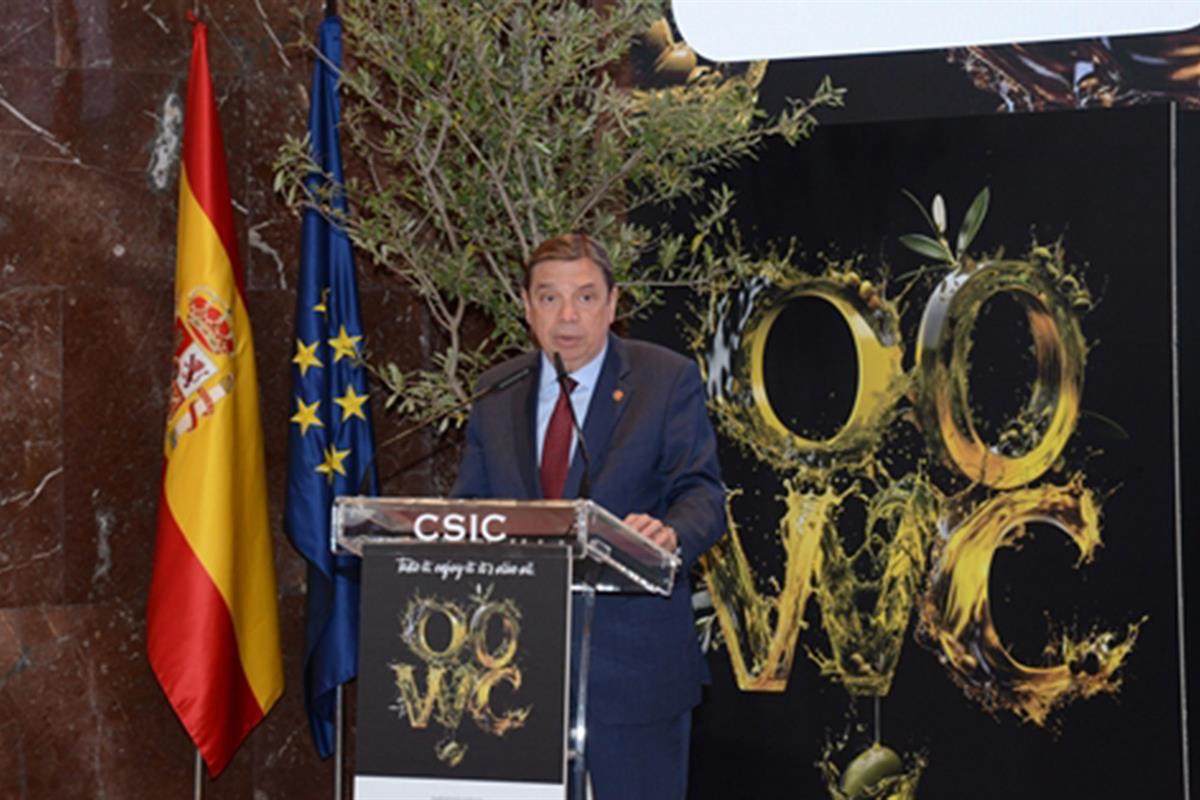 The Minister for Agriculture, Fisheries and Food, Luis Planas, closes the first edition of the Olive Oil World Congress in Madrid
The Minister for Agriculture, Fisheries and Food, Luis Planas, closes the first edition of the Olive Oil World Congress in Madrid
The Minister for Agriculture, Fisheries and Food, Luis Planas, today underlined the quality, goodness and organoleptic attributes of olive oil, which is an emblem of Spain's agri-food heritage. "It is a unique element of the Mediterranean diet, but it is not only a food product, it is a way of life and a gastronomic culture that represents health and a future", he said.
The minister assured that one of the ministry's priorities is to show olive oil as a unique food, which provides extraordinary sensory qualities, with valuable nutritional and health properties and proven usefulness in the prevention of cardiovascular diseases.
Luis Planas today closed the first edition of the Olive Oil World Congress (OOWC), which took place in Madrid between 26 and 28 June, sponsored by the Ministry of Agriculture, Fisheries and Food and with the collaboration of the International Olive Council (IOC) and the Spanish National Research Council (CSIC).
The congress brought together national and international experts and scientists who addressed the current situation and the main challenges facing the entire olive oil value chain. The minister emphasised that issues have been addressed from different angles of vision, and the fundamental role of science in public management. "We make policies based on scientific evidence, which is fundamental to be able to face all the future challenges we encounter," he said, citing for example those related to climate change.
During his speech, the minister referred to the different initiatives promoted by the Government to consolidate the leadership of the Spanish olive oil sector and to face a dual digital and green transformation. In this respect, he pointed out that his department has financed different projects to promote innovation and technological advances in the olive sector.
He also recalled that Spain is leading support for the European Union's legislative initiative on plants obtained by new genomic techniques, which are better adapted to the effects of climate change, and which will allow the necessary strategic autonomy and food security to be strengthened. In this area, he recalled that a few days ago the agreement was signed to adhere the World Olive Germplasm Bank to the International Treaty on Plant Genetic Resources for Food and Agriculture.
The minister also highlighted the commitment to quality. Spain has 31 Protected Designations of Origin and 2 Protected Geographical Indications for olive oil, which are labels that accredit the special character of the oils.
The minister pointed out the consumption potential that olive oil still has in the world, as it currently represents barely 3% of the production of vegetable fats despite it being one of the healthiest fats. He noted that on his recent trip to the United States he had seen the existence of a very vibrant oil market outside the producing countries.
To promote the image and market position of olive oil in Spain, the ministry awards the "Foods of Spain" prizes for the Best Extra Virgin Olive Oils, as part of the "Foods of Spain" strategy. This initiative is joined by the "Spain Food Nation" campaign, a major government effort to promote Spanish foods in third countries.
The minister emphasised the growing presence of Spanish olive oil in international markets. Globally, olive oil was, in 2023, the second most exported product from Spain, with a value of close to 4.5 billion euros.
In the domestic market, olive oil consumption has shown a certain stability, and the minister highlighted the loyalty of consumers to this product in a period in which it has experienced a significant rise in prices. Planas pointed out that, sensitive to this situation, the Government approved the elimination of VAT on olive oil until 30 September last Tuesday in the Council of Ministers, and that from then on there will be a gradual recovery, although it will remain at the super-reduced rate for basic necessities.
Non official translation




